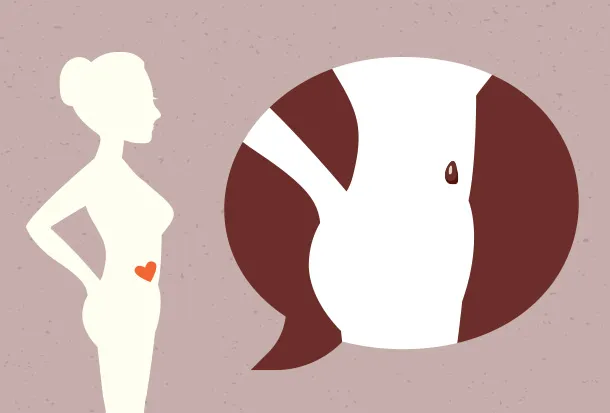The second week of pregnancy is one of the most important moments of pregnancy. At this time ovulation takes place and the egg is ready to join with the sperm. If all goes well, the embryo will nest in the uterus in a few days and you will notice the first symptoms of pregnancy. Pay special attention to your health in the 2nd week.
According to the Naegele rule, the beginning of pregnancy is not the time of conception, but the first day of the last menstrual period. Therefore, the 2nd week of pregnancy is actually the time when your body is just preparing for the union of egg and sperm. If you have a regular menstrual cycle of about 28 days, it is likely that your fertile days are now.
2nd week of pregnancy
Ovulation, i.e. the release of the egg, takes place in the 2nd week of pregnancy. This is the time when the chances of conception are greatest. If you are trying to have a baby, now is the best time to have sex with your partner. However, remember that the fertile days start earlier than the day of ovulation. This is because sperm cells can survive in a woman’s body for up to several dozen hours and still have the ability to combine with the egg.
Remember that ovulation occurs 14 days before the first day of your next period. If you want to know when you have the best chance of getting pregnant, you should monitor your cycle even before you start planning a pregnancy. This will reduce the likelihood of failure.
Symptoms in the 2nd week of pregnancy
In the 2nd week of pregnancy, the symptoms are not yet present. They only appear after the fusion of egg and sperm, because this is when the hormone surge starts. You will not notice the first symptoms until later, on the day of your expected period. It will certainly be the absence of bleeding, but perhaps also other symptoms (e.g. mood swings, breast tenderness, nausea, lack of energy). The appearance of these symptoms should prompt you to take a pregnancy test.
You may notice some symptoms in the 2nd week of pregnancy if you monitor your menstrual cycle regularly by taking your temperature and watching your mucus. On the day of ovulation, your body temperature rises up to 37℃. The discharge from the vagina is slippery, thin and transparent. You may feel that there is significantly more than on other days.
What happens in the mother’s body in the 2nd week of pregnancy?
Even if there is no embryo in the 2nd week of pregnancy and you do not see any symptoms, this does not mean that nothing is happening in your body. Your body is preparing for fertilisation. And it is doing this in several ways.
First of all, in the 2nd week of pregnancy, the Graafian follicle matures. Thanks to the increase in luteinising hormone, the follicle ruptures and the egg is released. It is then caught by the fallopian tube and gradually moves towards the uterus. In the 2nd week of pregnancy, you may experience abdominal pain. This is called ovulation pain and is due to the rupture of Graaf’s follicle (the absence of the follicle does not mean that you did not ovulate).
The remains of Graaf’s follicle turn into the corpus luteum, which produces progesterone. Under its influence, the lining of the uterus expands to accommodate the fertilised egg. When you become pregnant, menstrual bleeding therefore stops.
How do you care for yourself in the 2nd week of pregnancy?
The 2nd week of pregnancy is the time when you should take care of yourself. Remember to eat healthily (your diet should provide you with the right amount of calories and all the vitamins and minerals), avoid stimulants and engage in daily physical activity if it suits your abilities. If you have not already done so, you should start taking folic acid. It is part of the prevention of neural tube defects in the child.










